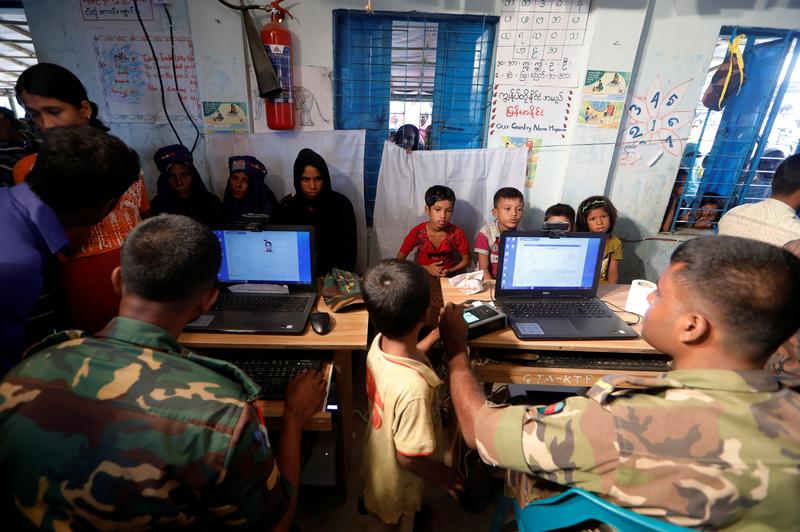Updates to a 25-year-old agreement between Burma and Bangladesh on refugee repatriation are needed before the process can move forward, according to a senior Burmese official.
Myint Kyaing, permanent secretary of the Ministry of Labour, Immigration and Population, said Burmese government officials must discuss with their Bangladeshi counterparts in order to add additional points to an agreement that was inked in 1993. Bangladesh has agreed and suggested additions of its own in order to bring the accord in line with the realities of 2017.
“Both sides need to do more discussion on that,” Myint Kyaing told DVB on Wednesday. “The 1993 agreement should be updated. It was drafted in 1992. So, some points should be added. But we cannot say what points would be added in the updated agreement,” he said.
Burma and Bangladesh agreed in October to cooperate on refugee repatriation, though no concrete framework was announced. Tin Myint, permanent secretary for Burma’s Home Affairs Ministry, told reporters that a joint working group would be formed to iron out the details, following a meeting in Naypyidaw between officials from the two countries’ home affairs ministries on 24 October.
More than 600,000 Rohingya Muslims have fled to Bangladesh from northern Rakhine State since 25 August, when attacks by Rohingya militants on several police outposts sparked a fierce counter-insurgency campaign by Burmese security forces. Recounting tales of atrocities allegedly committed by those security forces, the refugees have poured across the border on a near-daily basis, with 4,000 more reportedly arriving as recently as Wednesday.
Burma may have made the already sensitive bilateral dialogue on repatriation more difficult earlier this week when a senior government spokesman accused Bangladesh of delaying the process. Zaw Htay, director-general of the Ministry of the State Counsellor’s Office, appeared to suggest that the motive for stalling was the hundreds of millions of dollars in international humanitarian aid assistance that Bangladesh is due to receive to cope with the refugee crisis on its border.
According to the 1993 agreement between Burma and Bangladesh, refugees can only return if they can prove Burmese citizenship, either with identity cards, national registration cards or other official documents issued by the relevant Burmese authorities, such as evidence of their residence in Burma.
[related]
The Burmese government previously said it expected the first screenings for repatriation would take place at checkpoints in the Maungdaw Township villages of Taungpyo Letwe and Nga Khu Ya, with those sites chosen for their accessibility and relatively favourable transportation conditions.
Although Burmese government officials — most prominently State Counsellor Aung San Suu Kyi — have signaled willingness to take back refugees with rightful claims to residence in Burma, some ethnic Rakhine villagers are balking at the repatriation plans.
Aung Kyaw Win said he would leave his village, Aung Tha Pyae, if “Bengalis” were resettled in close proximity.
“We had always lived with them nearby. We didn’t provoke them. But they did three times to us. That’s why we cannot live with them these days,” he said.



